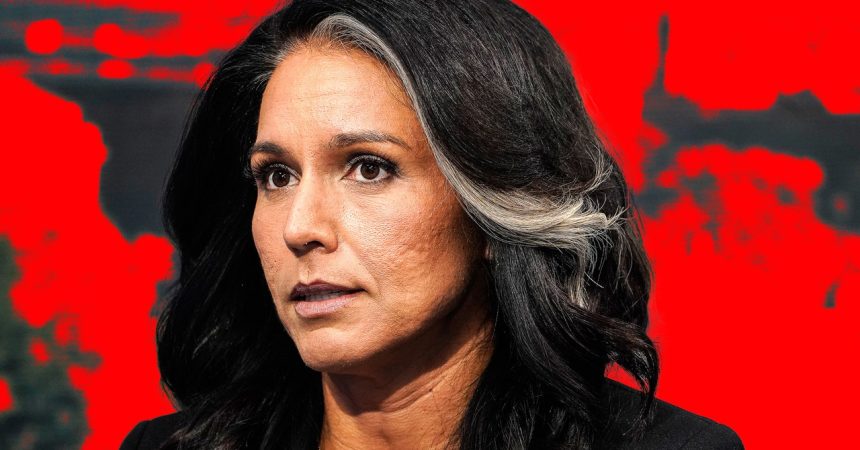Tulsi Gabbard’s nomination as Director of National Intelligence (DNI) under a potential second Trump presidency has sparked significant controversy, primarily due to her unconventional political stances, questionable associations, and perceived lack of experience in the intelligence field. Project 2025, the Heritage Foundation’s blueprint for a Trump administration, proposes granting the DNI unprecedented power over the intelligence community, including sole responsibility for the President’s Daily Brief and control of the intelligence budget. This amplified authority, coupled with Gabbard’s controversial background, raises concerns about the potential politicization of intelligence and the direction of national security policy under a second Trump term.
Gabbard’s past actions and statements have drawn criticism from across the political spectrum. Her meeting with Syrian President Bashar al-Assad in 2017, coupled with her subsequent questioning of U.S. intelligence assessments regarding chemical weapons use by the Assad regime, raised serious doubts about her judgment and foreign policy perspective. Her departure from the Democratic Party in 2022, accompanied by rhetoric echoing QAnon conspiracy theories, further fueled concerns about her susceptibility to disinformation and extremist ideologies. Her seeming justification of Russia’s invasion of Ukraine and her propagation of Russian-backed conspiracy theories about U.S. biolabs further cemented her image as sympathetic to authoritarian regimes and hostile towards established U.S. foreign policy consensus.
Critics, including Democratic lawmakers and national security experts, have expressed alarm at Gabbard’s potential appointment. They highlight her lack of relevant experience in intelligence and her history of embracing conspiracy theories, including those promoted by Russia, as disqualifying factors. Her association with figures like Kari Lake, a prominent election denier, further underscores these concerns. Gabbard’s defense of her views often revolves around claims of independent thinking and challenging the status quo. However, her critics argue that her pronouncements often align with propaganda narratives of adversarial nations and undermine U.S. national security interests.
Gabbard’s connection to the Science of Identity Foundation, an organization described by some former members as a cult, adds another layer of complexity to her profile. While religious freedom is a paramount value, the potential influence of such an organization on a high-ranking intelligence official raises legitimate questions about objectivity and decision-making. The nature of this group and its potential impact on Gabbard’s worldview warrant further scrutiny, particularly given the sensitive nature of the DNI position.
Adding to the controversy is Gabbard’s involvement with Mike Willis, a figure known for anti-immigrant activism and production of films promoting conspiracy theories about the southern border. While Gabbard has acknowledged visiting the border and producing a documentary, she has been reticent about Willis’s role in the project. This association raises concerns about the potential influence of nativist ideologies on her approach to immigration and border security issues, further complicating her potential role as DNI.
The confluence of these factors paints a concerning picture of a potential DNI who might prioritize political agendas over objective intelligence analysis. Gabbard’s history of embracing conspiracy theories, her questionable associations, and her lack of experience in the intelligence community raise serious doubts about her suitability for this critical position. The potential ramifications of her appointment, particularly given the proposed expansion of DNI powers under a potential second Trump administration, could have far-reaching consequences for U.S. national security and foreign policy. The controversy surrounding her nomination underscores the importance of rigorous vetting and the selection of qualified individuals based on experience, integrity, and unwavering commitment to objective intelligence analysis.



